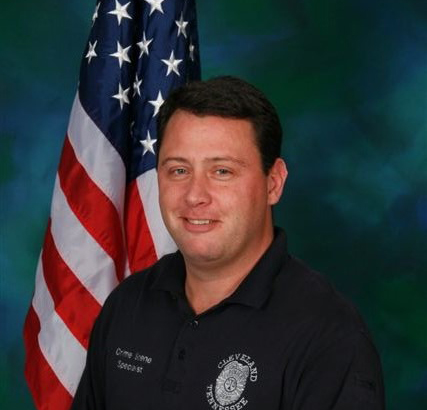Attorneys representing several fired or disciplined employees of the Cleveland, Tenn., police department say the city could be liable for damages because of its failure to properly adopt the policies on which it based the personnel actions.
"Unadopted policy cannot have the force of law, it is just a document," said Chattanooga attorney Jerry Tidwell, who represents some former CPD employees who are challenging their terminations. "It has no force at all, it's nothing but a suggestion."
The city charter states that all personnel rules must be adopted by the Cleveland City Council, and that the city manager has responsibility to hire and fire "all city employees and appointive officers provided for by or under this charter or personnel rules adopted pursuant to this charter."
There is a city personnel policy, properly adopted. But according to council meeting minutes and City Attorney John Kimball, the separate police policies cited in the discipline and firings of numerous officers have never been put to a council vote.
Cleveland attorney Jimmy Logan also represents several former and current CPD employees. His clients "have been concerned that the policies applicable to them have not received the consideration of the policy-making body, the City Council, as provided by the city charter," Logan said.
The police department has undergone a recent wave of disciplinary action after the acting chief, Dennis Maddux, was caught in a compromising situation with the wife of one of his subordinates, Officer Jeff Griggs.
An investigation conducted by the 10th Judicial District Attorney's Office found Maddux lied about having an affair with Griggs' wife. Investigators also found Griggs was untruthful and that Lt. Steve Tyson failed to tell his superiors that Griggs had been arrested, both in violation of department policies.
Maddux, a 28-year veteran, retired from the department before he could be terminated by City Manager Janice Casteel. Griggs and Tyson were demoted and reassigned for their policy violations.
These three employees and a slew of other officers have been disciplined or fired for violating policies that may not have the force of law, the attorneys said. That could open the city up to big-money lawsuits, they added.
Tidwell said there is a reason that policies and procedures are set in place. "They are not suggestions. ... Follow them," he said.
Kimball was formally questioned about the adoption of the police department's policies by Logan on May 21 in a hearing where Griggs appealed the disciplinary action.
According to an audio recording of the hearing, Logan asked Kimball if the general orders of the police department were ever adopted by the City Council.
"No, the general orders are not approved; they are like, they are basically the standard operating procedures of the Cleveland Police Department," Kimball responded.
Logan then said, "I understand, so to your knowledge they don't have the force of law?"
Kimball responded: "I would disagree, I think they do, but your question was are they formally approved by the City Council."
Kimball did not respond to multiple requests from the Times Free Press for an explanation of this statement, and why he thinks the policies have the force of law.
Mayor Tom Rowland also did not respond to request for comment, and neither did a majority of council members.
Councilman Charlie McKenzie said that as far as he knows the police department has official policies.
"I don't know them all," he said. "I feel like the city manager is over all of that."
He added that he thinks Cleveland is one of the best cities in Tennessee, and that anyone should want to live there.
Casteel also did not return multiple requests for comment, but in a deposition dated Feb. 25, 2014, said the protocol she uses to lead the city is based on the city's charter.
"The City Council approves the policies of the city," Casteel said. "... [A]nd that is the basis for the way I do things, the process that I use."
She also previously told the Times Free Press that the police department's policies were adopted when the council voted to allow the department to apply for accreditation from the Commission for the Accreditation for Law Enforcement Agencies [CALEA], a national organization.
Kimball told council members the same thing in August 2014. He said the police department had its own set of policies and that "[the council] approved them by allowing [the police department] to apply for accreditation and they go through the process."
But Lt. Virgil Ray Hubbard, an accreditation manager for CALEA based in Knoxville, said that's not the way the process works.
Hubbard said departments applying for CALEA accreditation must create their own written directives or policies for hundreds of mandatory CALEA standards. But, he said, it is up to individual departments and their governing bodies to officially adopt and enforce those policies.
Tidwell said that, in other words, the adoption of policies "doesn't happen magically when you apply for CALEA."
"If they get in a courtroom they would probably find out that they don't have policies."
The City Council did adopt one policy, in August 2014, when it voted to amend the police department's policy regarding employee's use of controlled substances.
The vote came after Tyson was fired because he tested positive on a random drug test. Tyson and his family said he took one of his son's prescription pain pills for a kidney stone when he was off-duty, and the council voted to amend the department's policy and so Casteel could rehire him.
According to records provided by the city of Cleveland, this is the only time the council has voted on a specific policy of the police department.
Terminated officers have also raised concern over the lack of Casteel's signature on disciplinary action reports that made their firings official.
The reports have one line for the city manager to sign before any discipline is taken, and then another place for their signature once the disciplinary action is finalized.
On several of the officer's reports, Casteel failed to sign either line.
Casteel did not respond to questions asking why her signature was missing on these reports.
Tidwell said that based on what he has seen, the lack of Casteel's signature could make the firings void under the city's charter.
Casteel has been city manager for eight years, during which time the police department has lost two chiefs to sex scandals; seen the demotion of ex-chief Wes Snyder's brother-in-law for conducting multiple sexual affairs; had two officers sentenced to state prison for statutory rape and another fired and sued over allegations of sexual assault.
The City Council has supported Casteel through it all, but some council members have privately been calling for changes to stop the tide of negative publicity. After the Maddux scandal, Casteel hired former Tennessee Bureau of Investigation Chief Larry Wallace to study the department and make recommendations.
And the council voted last week to give Casteel her first formal evaluation since her hiring on June 22.
Contact staff writer Kendi Anderson at kendi.anderson@timesfreepress.com or 423-757-6592.
Previous report:



